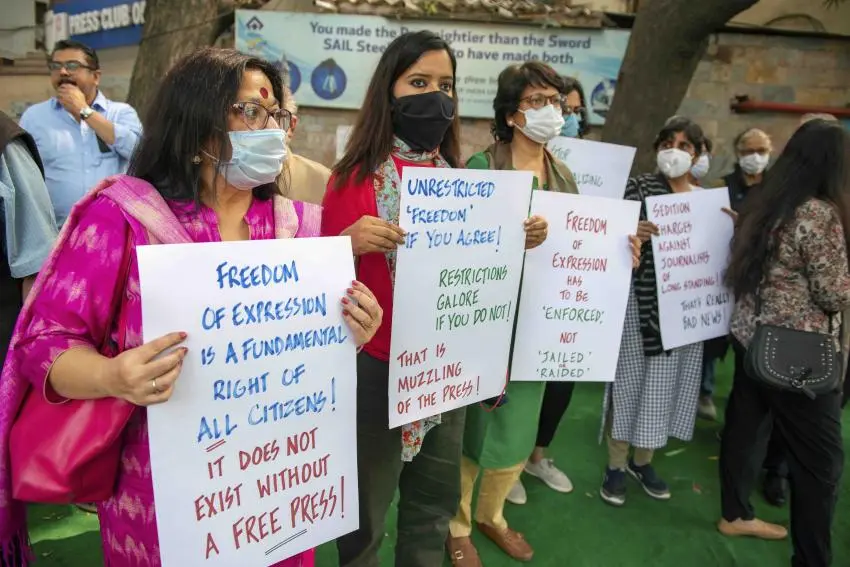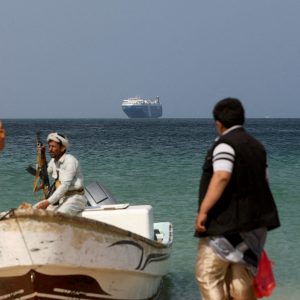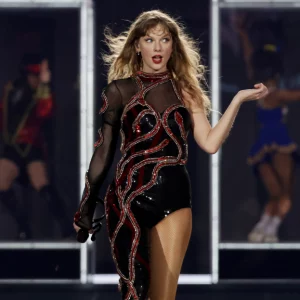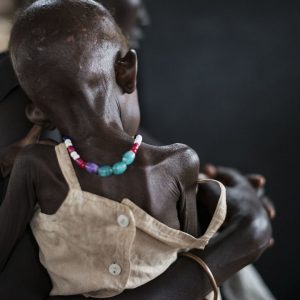“I have resigned. You won’t hear me on NDTV anymore saying, ‘Hello, I’m Ravish Kumar.’” These were the final words uttered by Ravish Kumar during a YouTube video last November in which he declared his official departure from New Dehli Television (NDTV).
The Current State of Affairs
Kumar making his exit from NDTV is just the most recent of the issues plaguing the Indian press. The beloved news anchor made the decision to depart following the announcement of Gautam Adani’s plan to acquire the network. NDTV has, in the past, been known as the Indian government’s biggest critic, typically utilizing its journalistic skills to keep the public informed of any new or surprising developments within the government that may affect them. The serious concern shared by the majority of NDTV journalists and anchors stems from Gautam Adani’s close relationship with the Prime Minister of India, Narendra Modi.
Rumors of stock manipulation and fraud within the Adani Group, India’s largest trader in coal and port operations founded by Narendra Modi, have made those remaining in NDTV weary of potential press restrictions and government monitoring of what has historically been a network promoting free speech.
Although Adani has claimed that NDTV will remain an unrestricted news organization free to report on whatever they like however they want to, many remain unconvinced of such claims. After all, according to Roskilde University political scientist Somdeep Sen, Adani has, , gained much of his wealth from his historically “problematic relationship” with Prime Minister Modi. This relationship remains challenging because it holds a significant power to blur the lines between good and bad NDTV reporting. Instead of commenting on the truth, it seems reasonable that NDTV could be forced to report on what the government wants the network to report on due to this relationship between Adani and the Prime Minister.
In addition to this, there has been a history of abuse towards those journalists in India who do choose to be critical of the Indian government in their reports. Most of this harassment comes from the Bharatiya Janata Party, which is the group supporting Modi.
A majority of the Indian population seems to view Adani as corrupt and untrustworthy, which is why this claim regarding the future of NDTV has been widely disregarded. Additionally, it would only make sense for Adani to prioritize his relationship with the Prime Minister as this relationship benefits him and his wealth.
India’s Press-Restrictive History
India’s history showcases other instances of restrictive journalism. In fact, the Indian government has previously specifically requested that social media companies such as YouTube and Twitter remove certain disagreeable content from their platforms. An instance of this relates to the publishing of the British Broadcasting Companies’ documentary titled “India: The Modi Question.”
India’s Ministry of Information and Broadcasting requested the documentary be taken down due to the fact that the documentary directly made the claim that Modi is responsible for “a climate of impunity” within India, leading to the huge breakout of violence in the 2002 Gujarat Riots. Even after the documentary was removed from these platforms, Indian governmental tax officials still conducted a raid and search everything in both BBC’s Dehli and Mumbai offices. Every member of staff making the claim that they had been questioned by Indian governmental tax officials. It is still unclear what these officials were searching for. However, the questioning lasted a total of three days.
This is not the only issue within India’s Press network: the country has a history of jailing journalists who speak out against the government. For instance, Siddique Kappan, an Indian journalist, was released from prison after serving a total of 864 days for inciting violence under the Unlawful Activities Act according to government officials.
After being released, Kappan participated in an interview wherein he claimed that not only was he jailed for attempting to report a woman’s rape–which was used as evidence of his inciting violence in the streets; but upon release, he claimed to be physically and mentally tortured by the officers within the prison. Kappan has made his intentions clear by stating that he will continue to fight against the Indian government’s press restrictions and report the truth to the people of India.
The Future of Free Press and Democracy in India
Understandably, it is difficult for many Indian Press Organizations to remain neutral and stick only to the facts as most of their funding comes from the Indian government itself. This means that press organizations risk receiving less funding if they don’t report on something the Indian government approves of or speak ill of the government at all. However, this relationship between the government and the press in India could harm the country more than the press organization and its employees.
According to Reporters Without Borders 2023 Free Press Index, India was given a score of 36.62 leaving the country in the 161st spot out of 180 countries. The same report says that currently, India has detained 10 journalists and one journalist has died since the beginning of 2023. It is clear here that the freedom of speech and press are being restricted within India and, as a result, democracy suffers as well. These two liberties are core values within a democracy and without them, the knowledge and participation of the people in governmental affairs is suppressed beyond repair. After all, how can you participate in something if you don’t know about it, and can’t speak your own mind on the topic?
With the world’s 30th Freedom of Press Day having taken place on May 3rd of this year, it is unclear what the future of the Indian Press Network will be, especially since the United Nations has declared protecting journalists as one of the items on the 2030 UN Agenda for Sustainable Development. It seems possible that a larger international organization such as the United Nations would get involved in these issues if they become expansive or protested enough, but for now, all we journalists can do is watch, write, and report.
Featured Image Source: AP Images






Be First to Comment